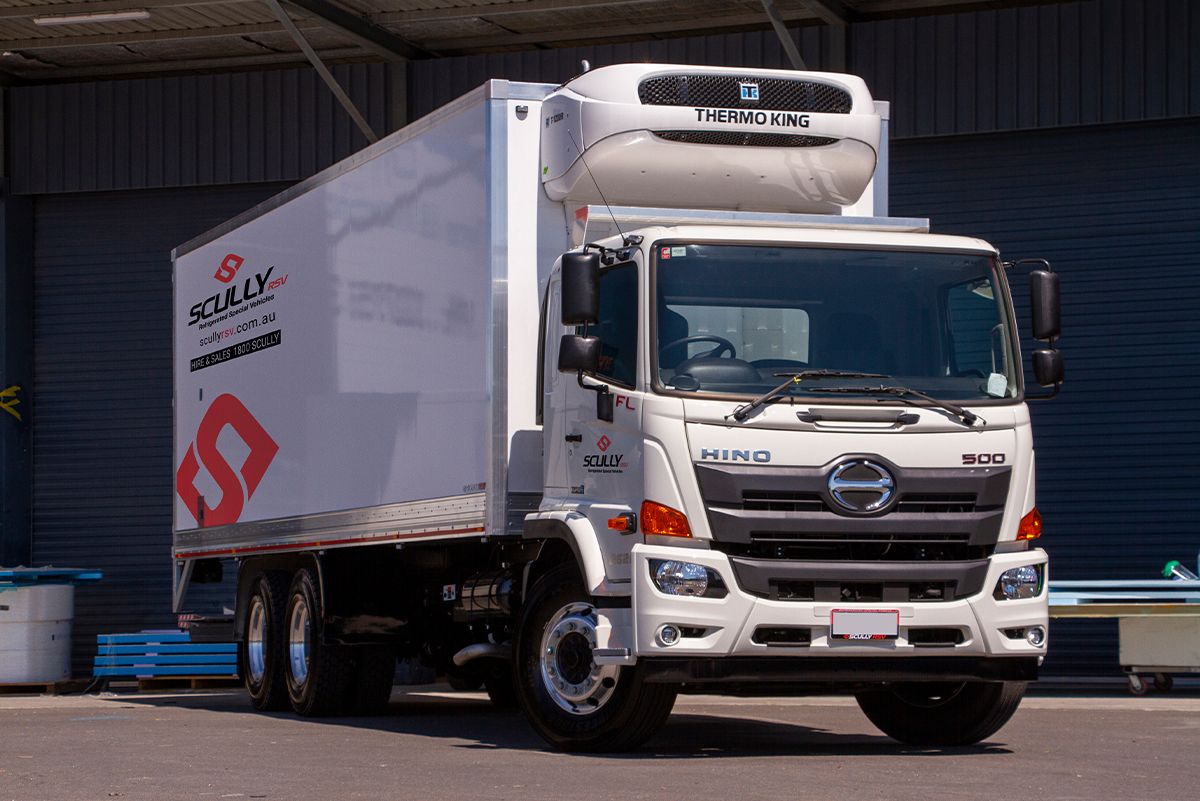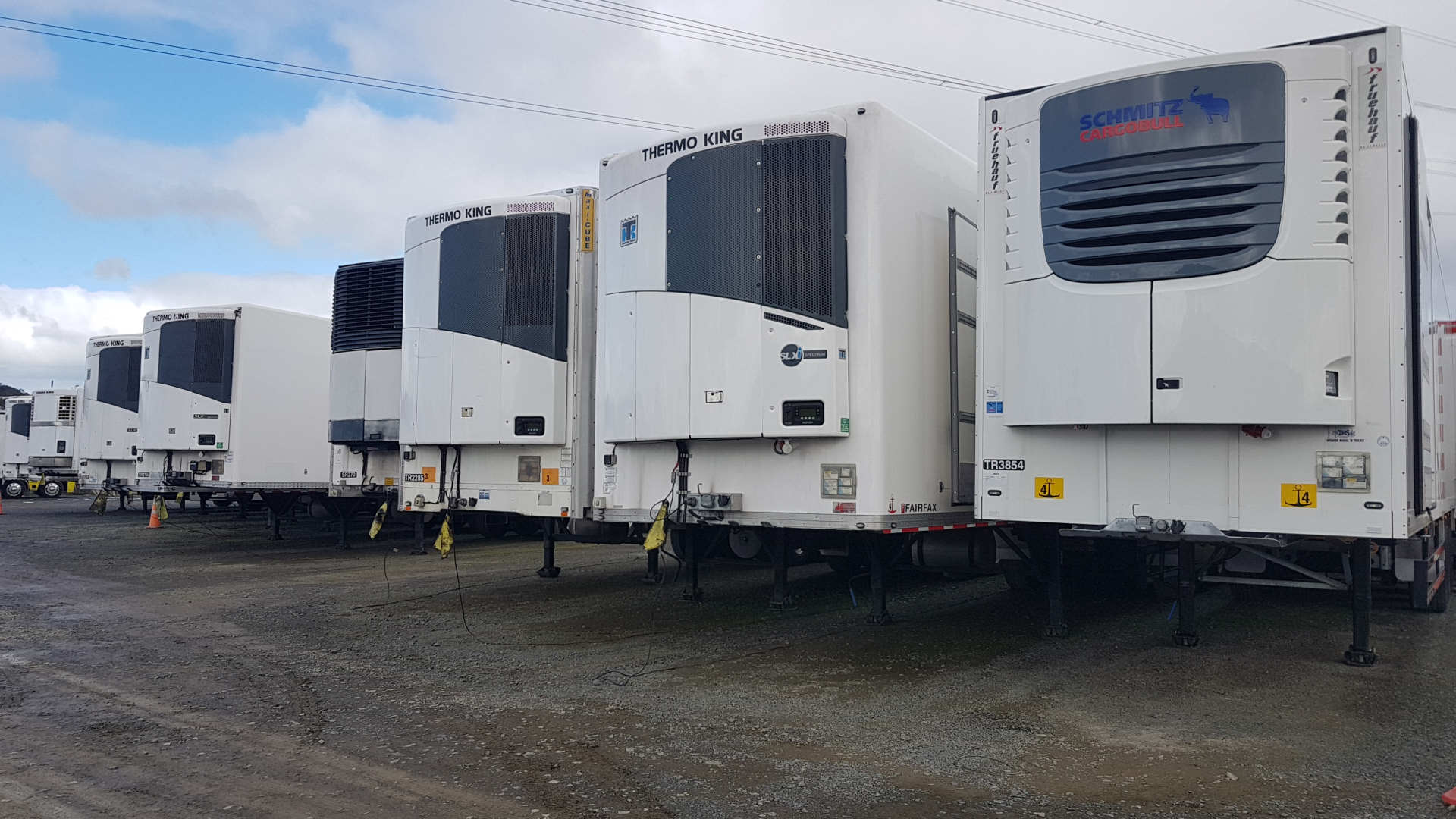Refrigerated Transportation Thermo King: The Ultimate Option
Refrigerated Transportation Thermo King: The Ultimate Option
Blog Article
Leading Technologies in Transportation Refrigeration: Enhancing Performance and Safety And Security
The landscape of transportation refrigeration is undergoing significant makeover, driven by advancements focused on improving both performance and safety and security. Secret innovations such as clever temperature surveillance systems, environmentally friendly refrigerants, and automated course optimization are pivotal in dealing with the industry's difficulties. These modern technologies not just guarantee the honesty of temperature-sensitive products yet likewise add to sustainability initiatives. As these advancements remain to progress, it is essential to discover their implications on operational techniques and regulative conformity, triggering a closer evaluation of just how they reshape the future of transportation refrigeration.
Smart Temperature Keeping An Eye On Systems
In the realm of transportation refrigeration, clever temperature level monitoring systems have actually emerged as a crucial technology for making sure the integrity of temperature-sensitive goods. These advanced systems leverage Web of Points (IoT) modern technology to provide real-time information on temperature level changes, making it possible for drivers to keep ideal problems throughout the supply chain. By constantly tracking the temperature level of cooled containers and lorries, firms can quickly determine inconsistencies that might endanger product high quality.

Additionally, smart monitoring systems often integrate automated informs and alerts, enabling stakeholders to respond quickly to any type of potential concerns. This proactive approach not just reduces the threat of spoilage but additionally enhances compliance with governing criteria controling food safety and pharmaceutical transport.
The assimilation of data analytics within these systems additionally facilitates anticipating upkeep, assisting operators to foresee possible equipment failings prior to they take place. This capacity lowers downtime and enhances operational effectiveness, inevitably causing cost financial savings.
Eco-Friendly Refrigerants
Smart temperature monitoring systems play a vital duty in maintaining item high quality, however the performance of transportation refrigeration additionally pivots on the choice of refrigerants used. In comparison, emerging choices like hydrocarbon-based refrigerants and hydrofluoroolefins (HFOs) existing lower GWP alternatives, offering both performance and sustainability.
These eco-friendly refrigerants not only minimize ecological effect however also align with worldwide regulations aimed at eliminating unsafe substances. Their fostering can bring about boosted energy efficiency, ultimately lowering operating prices for transportation refrigeration systems. The use of all-natural cooling agents, such as ammonia and carbon dioxide, has acquired grip due to their exceptional thermodynamic residential or commercial properties and lower environmental footprint.
Buying green cooling agents is not just a regulatory conformity procedure; it represents a critical decision that enhances brand name reputation and promotes customer loyalty. refrigerated transportation thermo king. By prioritizing lasting techniques, business can add to a greener future while making sure the integrity of delivered products
Advanced Insulation Materials
Using sophisticated insulation products is crucial for maximizing transport refrigeration systems, as they dramatically enhance energy performance and preserve constant temperature control. Standard insulation approaches usually fall brief in avoiding thermal transfer, bring about boosted power intake and varying temperatures within cooled areas.
Arising products such as vacuum insulated panels (VIPs) and aerogels supply exceptional thermal resistance, enabling thinner profiles without jeopardizing performance. VIPs, for example, utilize a vacuum layer to reduce convective and conductive warm transfer, making them excellent for space-constrained applications. Aerogels, understood for their lightweight and permeable structure, offer extraordinary insulation while dramatically reducing general system weight.
In addition, integrating phase adjustment products (PCMs) into insulation systems can better support temperatures throughout transit. These materials absorb and release thermal power, successfully buffering versus external temperature variations.
The combination of these advanced insulation materials not only lowers the operational expenses related to energy consumption but also expands the life span of temperature-sensitive products. As the transport refrigeration sector proceeds to progress, the adoption of innovative insulation innovations will be pivotal in enhancing both performance and security in cooled transport.
Automated Path Optimization
The efficiency of transportation refrigeration systems is greatly improved with automated course optimization, which leverages real-time information and sophisticated algorithms to establish one of the most effective paths for shipment. By analyzing various variables such as traffic patterns, weather, and delivery windows, these systems can considerably reduce traveling time and gas intake.
Automated course optimization lessens human mistake and subjective decision-making, which can lead to inadequacies. This technology makes it possible for fleet managers to allocate resources a lot more successfully, making sure that refrigerated items maintain their required temperature level throughout the journey. By optimizing routes, companies can also enhance client complete satisfaction via timely shipments.
Moreover, automated systems can adapt to unforeseen situations, such as roadway closures or unexpected website traffic spikes, permitting official statement for dynamic rerouting. This versatility not just secures the integrity of temperature-sensitive products but additionally adds to total click for more functional efficiency.
Implementing automated path optimization can lead to substantial expense savings while reducing the carbon impact linked with transport. As organizations progressively focus on sustainability, this innovation sticks out as an essential element in modern transport refrigeration, aligning operational objectives with ecological responsibility. Inevitably, automated path optimization stands for a substantial innovation in the pursuit for performance and security in transport refrigeration.

Real-Time Information Analytics
Automated course optimization considerably gain from the assimilation of real-time information analytics, which gives crucial insights right into the performance of transport refrigeration systems. By making use of real-time information, transportation operators can keep an eye on temperature variations and devices efficiency, ensuring that disposable items are kept within required parameters throughout transportation. This aggressive approach not only boosts the quality of the delivered items but likewise reduces the risk of perishing and loss.

Along with boosting performance, real-time analytics boosts safety and security by ensuring conformity with regulatory standards for temperature level control. This not just safeguards public health yet also strengthens a company's track record - reefer trucks thermo king. As the transport refrigeration sector develops, the assimilation of real-time information analytics arises as a foundation for driving development, sustainability, and operational excellence
Final Thought
In final thought, the improvements in transportation refrigeration dramatically improve both performance and safety within the industry. Collectively, these advancements stand for an essential advancement in transport refrigeration, ensuring conformity with regulatory requirements and promoting a greener future.
The landscape of transport refrigeration is going through considerable change, driven by advancements aimed at boosting both efficiency and safety.Smart temperature monitoring systems play an important function in maintaining item top quality, however the efficiency of transportation refrigeration likewise pivots on the choice of cooling agents utilized. Their fostering can lead to boosted energy performance, ultimately decreasing operating expenses for transport refrigeration systems. Inevitably, automated route optimization stands for a substantial improvement in the pursuit for performance and safety and security in transportation refrigeration.
In final thought, the innovations in transport refrigeration considerably enhance both performance and safety within the market.
Report this page